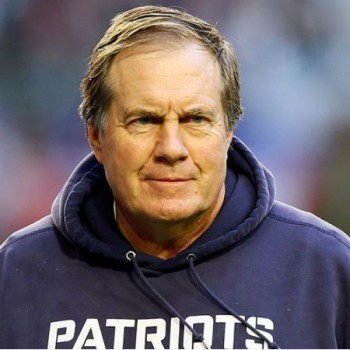 Super Bowl LI has to be one of the greatest contests ever: What a comeback!
Super Bowl LI has to be one of the greatest contests ever: What a comeback!
For me, it brought back an incredible memory, when I had the pleasure of interviewing Bill Belichick, Super Bowl winning coach of the New England Patriots for my book “We Got Fired! … And It’s the Best Thing That Ever Happened To Us.”
Belichick was fired by the Cleveland Browns in February 1996 and spent one season as the defensive backs coach with the Patriots. He was the defensive coordinator for the New York Jets from 1997-99 before becoming the Patriots’ head coach in 2000. He is the only head coach to win five Super Bowls.
Analytical as always, Bill acknowledged that his coaching style had changed over the years, especially in the transition from being coach at Cleveland to ultimately becoming the head coach at New England.
“I’ve been a head coach for two teams: the Browns and the Patriots,” Bill reflected. “I’m a detail-oriented person. I’ve delegated more with the Patriots than I did with the Browns. At times, I may have been too detail- oriented in Cleveland. Perhaps I should have put my time and energy into some bigger picture things. In Cleveland, I might also have been a little too football-oriented. I felt that so much of the game was determined between the lines, and a high percentage of my focus is still there. But, there are a lot of things that go on outside the white lines that affect the chemistry of the team. I’m trying to be more aware of and sensitive to those.”
NFL coaching is the supreme balancing act. They have the desire to hang on to their job, and they have to do what’s right for their team. It’s like the choice between security and opportunity. If they only choose security, they lose both.
“You do what’s right for the team,” Bill firmly believes. “If the team wins, you’ll hang on to your job.” Doing one’s best for the team demands a deep sense of unselfishness. When you listen to Bill Belichick, the interesting twist is the order of the process. He tries to demonstrate it before it’s expected in return.
And when a player faces a setback, I asked Bill how he handles it.
“I try to show them that I have confidence in them. Foremost, I instruct them on how to deal with the performance problem. The motivational speeches have a place, but the first priority is to do the tangible things you need to do to fix the problem. If you couple self-motivation with the proper coaching and guidance, there’s a pretty good chance they will be successful in rebounding. It’s my job to provide that direction.”
A professional football coach’s job is often compared with that of a manager. In fact, a football coach has to act faster and in more drastic ways.
“I have never run a corporation, Harvey. In business, you can make 18 percent and I can make 17 percent and the next guy can make 16 percent – we’re all pretty happy. At the end of the day in athletic competition, one team wins and the other team loses. You both can’t be happy.”
Bill recovered so steadily from his setback in Cleveland, I’m convinced, partly because of the tremendous depth of his personal background. First, his father was a fullback for the Detroit Lions and coached at the Naval Academy for 33 years. Bill was able to observe some great coaches during this time. Talk about leveraging a network of information!
“It was a coach’s paradise! In the NFL, I was with five different coaches my first five years. That’s not only five coaches, that’s five staffs. Because I saw so many successful styles, I became confident that there wasn’t just one style. I didn’t try to be Vince Lombardi or Tom Landry. I tried to be Bill Belichick.”
Finally, I asked Bill if he had three pieces of advice for young people. They have all the zing of a two-minute drill that will march you over the goal line.
“Harvey, we all make a lot of mistakes as we go through life. (1) Don’t make the big ones. Take care of yourself and your own personal health. It can all end in a second with one stupid decision, and we’ve seen that happen too many times. (2) It’s not what you know, it’s whom you know. You build your relationships from your childhood through your adolescent years. You control your relationships. (3) It’s the self-starter in each of us that is really important. I don’t think you can count on somebody else to motivate you to do something. You have to want to do it personally, and you have to provide that energy. So, you better pick out something you really like to do, because you will have to be your own driving force.”
Mackay’s Moral: Learning to be a great coach is the most demanding spectator sport in the world.

